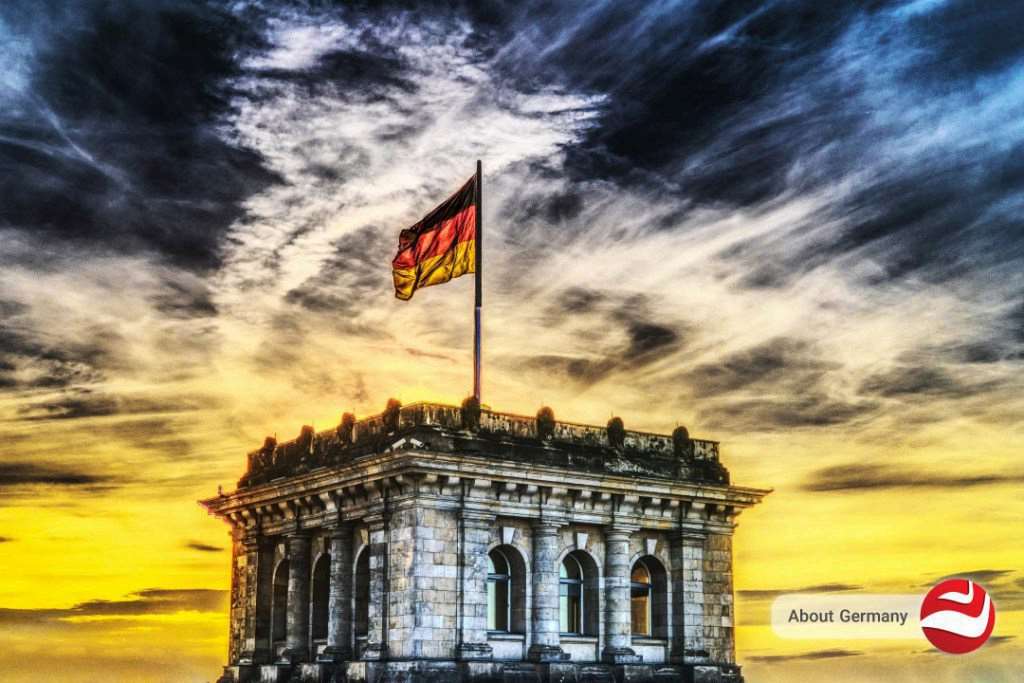Germany borders the North Sea, the Baltic Sea, and Denmark to the north, the Netherlands, Belgium, Luxembourg, and France to the west, Switzerland, and Austria in the south, the Czechia and Poland in the east. Additionally, it shares maritime borders with Sweden and the United Kingdom.
An area of 357,022 km² makes Germany the seventh-largest country in Europe, compared; it is about two-thirds the size of France, or slightly smaller than the US state of Montana.
Germany has a population of 83,2 million people (2020); the capital and largest city is Berlin, with about 3.3 million inhabitants.
The German economy is the fifth-largest economy in the world in PPP terms and Europe’s largest. Germany is a leading exporter of machinery, vehicles, chemicals, and household equipment and benefits from a highly skilled labor force. Like its Western European neighbors, Germany faces significant demographic challenges to sustained long-term growth. Low fertility rates and declining net immigration are increasing pressure on the country’s social welfare system and necessitate structural reforms.
EU Blue Card
The EU Blue is a special residence permit for foreign academics seeking qualified employment in Germany.
Requirements:
- You have a German degree, a recognized foreign higher education degree, or you have a foreign higher education degree that is comparable to German higher education degree.
- You already have a concrete job offer from a company in Germany.
- The position must be appropriate for someone with your qualifications (higher education degree).
- The position in Germany must be remunerated with a gross annual income of at least EUR 56,800.
Benefits of study residence:
- University students are allowed to work 20 hours per week
- They are allowed to apply for residence for their family
- During temporary residence they can start their own business
- It is possible to apply for renewal of residence for 9 months to seek for job
- The family member can work full time
Self-Employment Visa
Do you want to start a business or work as a freelancer in Germany? If so, you are able to apply for a visa for self-employment. Depending on whether you are planning on starting a business or working as a freelancer, different conditions apply.
Starting a business:
- There needs to be an economic interest in, or a regional demand for your product or service.
- It is foreseeable that your company will have a positive effect on the economy.
- You are able to finance the implementation of your business concept with your own capital or through a loan commitment.
Freelancers
- You can provide proof of sufficient funds to finance your endeavors.
- You have obtained any licenses required perform the job in question.
What opportunities does the visa for self-employment offer?
A visa or residence permit for self-employment is initially issued for up to three years. If your business idea is successful and you are able to cover the costs of living for both yourself and your family, the residence permit can be extended.
Job Seeker Visa
If you’re having difficulties searching for a job from abroad, you can apply for a residence permit that enables qualified professionals to enter Germany for the purpose of seeking employment.
- You can provide proof of vocational or academic training.
- Your qualifications are recognized in Germany or are equivalent to a German degree or diploma.
- provide proof of possessing the German language skills required for the job you are seeking
- You are able to prove that you can sufficiently cover your costs of living, as you are not able to enter into remunerated employment during this time.
Study Visa
Requirements:
- You’ve been accepted to an officially recognized higher education institution in Germany.
- You can provide proof of a secondary school diploma enabling you to study at a higher education institution, or proof of a recognized degree or diploma from a higher education institution.
- You can cover your costs of living for the duration of your studies.
- You might be required to provide proof of the language skills required for your study program.
Opportunities:
- The residence permit for study purposes can be issued for a minimum of one year and a maximum of two years.
- If you have not obtained your degree within this time, you can request to have your residence permit extended.
- Throughout your studies you may work 120 full days or 240 half days, in addition to performing student jobs.
- After successfully obtaining your degree, you can extend your stay in Germany by applying for a residence permit for jobseekers. The residence permit is issued for up to 18 months as a means to find qualified employment in Germany.
- You are allowed to perform any job while searching for qualified employment. As soon as you’ve received a job offer, you can apply directly in Germany to have your residence permit for study purposes converted into a work permit for qualified professionals or into an EU Blue Card.




